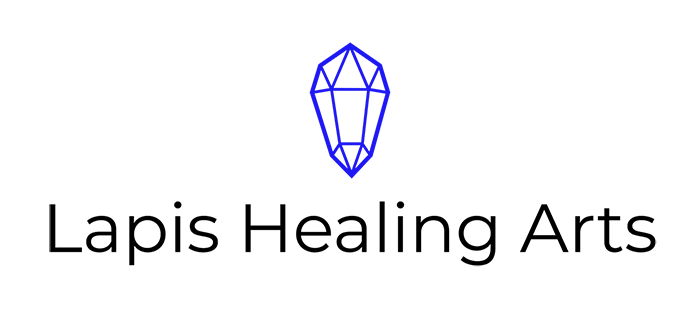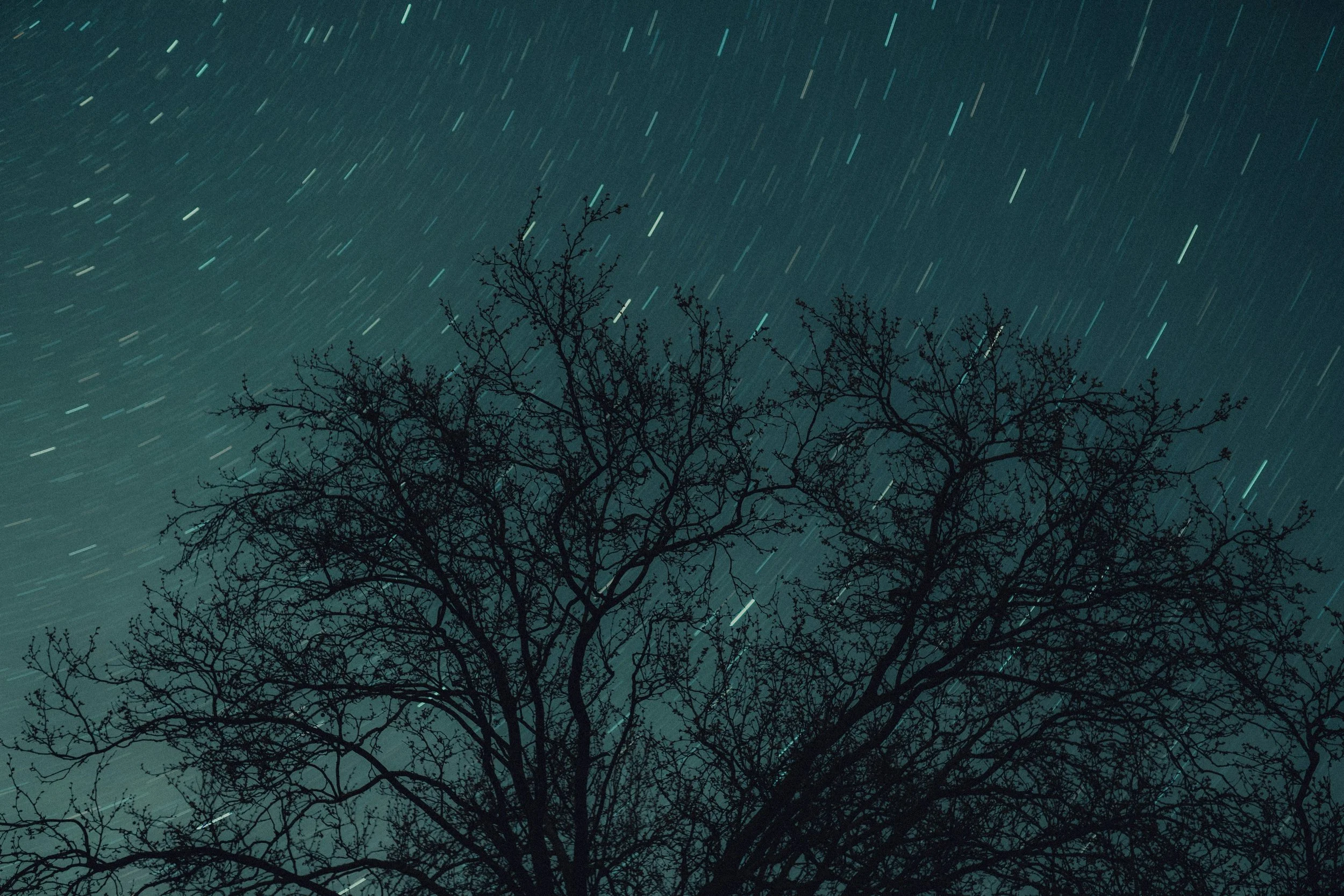Wetiko and the Collective Dark Night of the Soul
Last fall, a word kept coming to me, over and over: “wetiko.”
“Where have I heard this word before?” I thought to myself. I had a vague recollection of coming across it somewhere a few years prior. I wondered, “Is this similar to the Buddhist concept of the hungry ghost, or preta (a being who is gripped by gnawing desires)?”¹
I heeded the insistence of the word “wetiko” in my internal radio and did some research to clarify its meaning. Wetiko is a character or archetype described in Algonquin myths as a cannibalistic spirit driven by uncontrollable bloodlust and insatiable hunger. Algonquin tradition also describes wetiko as an actual physical condition marked by cannibalistic impulses and freezing in the chest cavity.² The wetiko, literally and figuratively, has a heart of ice.
According to psychotherapist and writer Rachael Vaughan, MFT, “The real danger of wetikos was not just that they could kill and eat others…The real danger is that wetiko is contagious. A wetiko can possess a person, making them into another wetiko…”² (This definition also recalls the archetype of the vampire, who is known to initiate others into vampirism with a fateful bite.)
Wetiko as a metaphor for narcissism
In my research, I learned that the wetiko archetype has also been explored by both contemporary Native American and non–Native writers to understand the psychospiritual root of our current global polycrisis. Author and thinker in the spiritual emergence*space Paul Levy defines wetiko as a “mind-virus” that is “…a cannibalizing force driven by insatiable greed, appetite without satisfaction, consumption as an end in itself, and war for its own sake, against other tribes, species, and nature, and even against the individual’s own humanity. It is a disease of the soul, and being a disease of the soul, we all potentially have wetiko, as it pervades and ‘in-forms’ the underlying field of consciousness.”³ In reading Levy’s words, it struck me that wetiko can be seen as a metaphor for narcissism.
At its core, narcissism involves an imbalanced sense of self that’s defended against its own humanity, vulnerability, and interconnectedness with others. Unfortunately, narcissism has become endemic in our overculture† to increasingly devastating effect.
I truly believe narcissism is the disease of our time.
The trap of othering
Narcissism often comes with condescending, dehumanizing, and abusive behaviors towards other individuals or groups. Empathy shrinks down into nothingness. The heart becomes hardened and icy-cold. There’s also a strong tendency to project one’s own shadow, or psychic refuse (including feelings of pain, inferiority, and deep shame), onto the “other.”
Othering—that is, projecting onto another person or group of people, emphasizing differences over commonalities, and often using these differences as a basis for dehumanization or abuse—is a sticky trap to fall into that can have dire consequences. Further, the tendency to other is frequently exploited by those who stand to gain power by dividing people (“divide and conquer”). After all, when people are provoked into fighting each other, they’re easier to distract and control.
As a therapist specializing in narcissistic abuse recovery, grappling with the idea of wetiko and its implications has greatly enhanced the way I think about and work with people healing from narcissistic abuse and the endangerment of empathy. Learning about wetiko has also shaped my understanding of our current global polycrisis. Narcissism and lack of empathy aren’t just interpersonal issues—they’re global ones.
“Whether it is a real virus, a thought virus, or an archetypal force, wetiko destroys our capacity for empathy, so that we prey on others. By destroying our sense of responsibility to the other, wetiko reduces a person to a state of mere being…and thus exiles them from their own humanity.”²
—RACHAEL VAUGHAN, MFT
Wetiko and the dark night of the soul
I work with many clients navigating the individual dark night of the soul—that is, a period of deep loss, confusion, and pain. Paradoxically, with adequate support and tending, the dark night can actually usher in psychic rebirth, evolution, and crucial transformation. From my lens as a transpersonal therapist, wetiko—narcissism—is a part our collective dark night of the soul, a challenge that we are all being tasked to tackle.
Narcissistic traits show up along a wide spectrum of severity. However, narcissism is also something that is deeply woven into and even encouraged by our hyperindividualistic, competitive overculture.†
Therefore, it’s incumbent upon all of us to self-reflect and be accountable. For example, this can look like asking oneself:
•When am I needlessly othering someone or a group?
•Am I looking at this situation with appropriate empathy?
•Am I projecting my own disowned feelings onto another?
•Can I have an argument with a loved one in a way that’s grounded in integrity and respect for both of us?
As Levy writes, “If we see someone who seems to be taken over by wetiko and we think they have the disease and we don’t, in seeing them as separate we have fallen under the spell of the virus ourselves. Wetiko induces in us a proclivity to see the source of our own pathology outside of ourselves—existing in ‘the other.’ Wetiko feeds off of polarization and fear—and terror—of ‘the other.’”³ Therefore, wetiko (narcissism) can be seen as the thing that we all must acknowledge in not only others but ourselves, work through, and learn from to reemerge wiser.
“Native American scholars such as Jack Forbes (2008) and Basil Johnston (1995)….suggest the insatiable hunger of wetikos and their lack of regard for others is at the root of globalization, neo-liberal economics, the destruction of the environment, and the widescale oppression of the world’s people. I can find no better explanation for what is happening in the world today.”²
—RACHAEL VAUGHAN, MFT
Where do we go from here?
Levy poses a compelling question: “Will wetiko destroy us? Or will it catalyze our evolution and wake us up?”³ Paradoxically, as treacherous as wetiko is, it also contains a seed of hope. The poison also contains its own antidote. Like the dark night of the soul, that which appears to be disastrous can also become a catalyst for change with the proper attention, holding, and support. When adequately nurtured, the seed of hope at the heart of wetiko can inspire each of us to do our part to piece the world soul back together.
A note about empathy
As a therapist specializing in codependency, I’ve seen that the topic of empathy can be quite charged. Many people who are working on overcoming codependency tend to be highly empathetic, which can unfortunately attract people with narcissistic traits. I’ve also noted that people struggling with codependent behaviors can confuse empathy with:
•Overextending themselves
•Enmeshing with other people
•Using attention, gifts, sex, money, etc., to try to win love and become “irreplaceable”
•Overlooking and excusing narcissistic abuse
So, to be clear, when I talk about our overculture† having an endangerment of empathy, I’m not saying that practicing empathy equates with losing your sense of self, spiritually bypassing feelings of anger, overextending yourself, and passively excusing abuse. Perhaps this is another blog post topic altogether—what does healthy empathy look like? And how can we each define for ourselves what our individual part is in knitting the fabric of the world soul back together? And how can we collectively knit the world soul back together? How can we deepen into greater empathy without spiritual bypassing or denying our authenticity, boundaries, and shadow? How can we recognize when we’re falling under the spell of wetiko?
Final thoughts
In many ways, this blog asks more questions than it provides answers. To paraphrase poet and novelist Rainer Maria Rilke in Letters to a Young Poet, perhaps living the questions is what must happen for now.⁴ However, I’ll add that attending to wetiko is a timely matter, especially in this critical moment for the human family, and for our planet at large.
Whether it’s an archetype, a mind-virus, or a physical malady, the chilling phenomenon of wetiko is undeniably powerful. Taken as a metaphor for the epidemic of narcissism and its subsequent endangerment of empathy, wetiko is a symptom of our collective dark night of the soul. And as such, it also contains within it deep potential and a seed of hope.
Seeds are miraculous in that while they’re tiny, they’re also incredibly hardy. They are designed to withstand freezing temperatures, aridity, and long periods of dormancy. When seeds are once again exposed to life-sustaining conditions, it awakens their encoded blueprint for growth, which contains all the information they need to flourish and grow into plants.
We are like seeds. It is possible to create life-sustaining conditions for one another—rather than cannibalizing, destructive ones. We have the capacity to melt the frozen heart and to cultivate grounded, authentic empathy.
How to go about this? Fostering genuine community, for one. As Vaughan writes: “In most traditions, people are caught by wetikos under specific circumstances which have weakened their usual physical and psychological/spiritual defences and separated them from protective community. This is encouraging, since it seems that if one’s spirit is strong, and one is embedded in a supportive community which fosters the right lifeways, one is less likely to be caught by a wetiko.”
*Spiritual emergence is the organic process of spiritual awakening that many people undergo spontaneously or due to various life events.
†“Overculture” is psychoanalyst and author Clarissa Pinkola Estés, Ph.D.’s term for “the grid that…slams down or sometimes subversively dreams down over the spirits and souls of human beings...in order to diminish them, set them into matchboxes, exhort them to behave, or else.”
Note: As I have very minimal Native American ancestry in my personal multicultural heritage, I cannot and would not assume a stance of full understanding of wetiko. I acknowledge the limitations and context of my perspective.
References
Hungry ghosts. Lion’s Roar. Accessed August 20, 2025. https://www.lionsroar.com/buddhism/hungry-ghosts/
Vaughan R. The world of wetiko: an investigation. Cosmos and History: The Journal of Natural and Social Philosophy. 2022;18(2):327-352. Accessed August 20, 2025. https://cosmosandhistory.org/index.php/journal/article/view/1008/1698
Levy P. Wetiko in a nutshell. Inner Traditions blog. Accessed August 20, 2025. https://www.innertraditions.com/blog/wetiko-in-a-nutshell
Rilke RM. Letters to a Young Poet. Translated by Mitchell S. New York, NY: Vintage; 1986.

